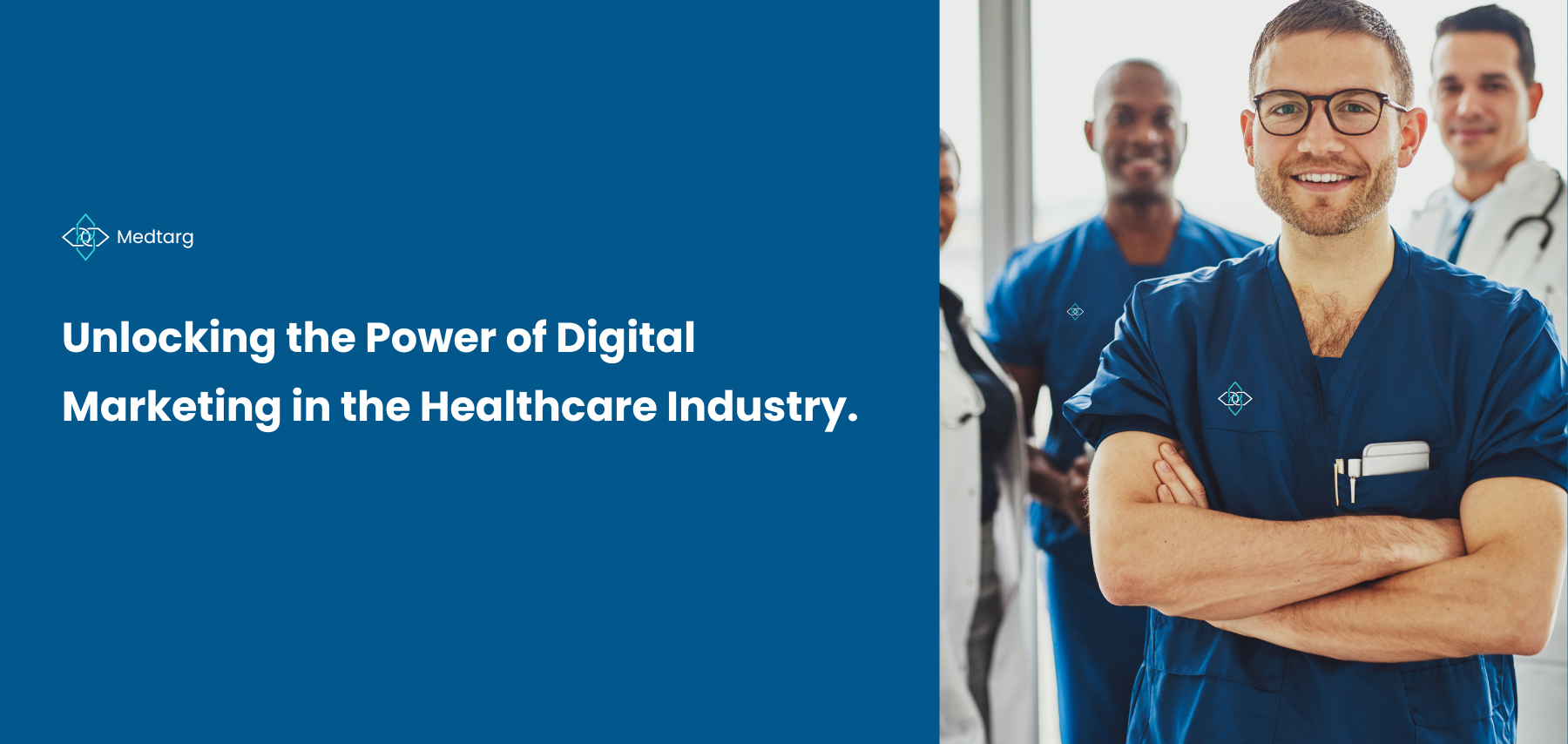Introduction: The healthcare industry is no longer confined to traditional marketing approaches. In today’s digital era, healthcare professionals must embrace digital marketing strategies to effectively reach and engage their target audience. This article provides an overview of digital marketing in the healthcare industry and highlights its importance for healthcare professionals.
- Defining Digital Marketing in Healthcare: Digital marketing refers to the use of digital channels, platforms, and technologies to promote products, services, and information in the healthcare industry. It encompasses various online marketing techniques, such as websites, search engines, social media, email marketing, content marketing, and more.
- Enhancing Online Visibility: Digital marketing allows healthcare professionals to increase their online visibility, making it easier for patients and other stakeholders to find and connect with them. A strong online presence helps establish credibility, build trust, and attract a wider audience.
- Targeted Audience Reach: Digital marketing provides healthcare professionals with the ability to target specific demographics, interests, and behaviors. Through techniques like search engine optimization (SEO) and paid advertising, healthcare professionals can reach their ideal audience, ensuring that their marketing efforts are highly relevant and effective.
- Engaging and Educating Patients: Digital marketing enables healthcare professionals to engage with patients in a meaningful way. Through informative content, engaging social media campaigns, and personalized email marketing, healthcare providers can educate patients about various health conditions, preventive measures, treatment options, and more. This empowers patients to make informed decisions regarding their healthcare.
- Building Patient Trust and Relationships: Digital marketing creates opportunities for healthcare professionals to build trust and establish long-lasting relationships with patients. By consistently providing valuable and relevant content, addressing patient concerns, and encouraging two-way communication, healthcare providers can foster patient loyalty and satisfaction.
- Leveraging Social Media: Social media platforms offer healthcare professionals a powerful tool for engaging with patients, sharing educational content, and addressing queries. Through social media, healthcare providers can humanize their brand, showcase their expertise, and create a sense of community among patients and healthcare professionals.
- Monitoring and Analytics: Digital marketing provides valuable insights through data monitoring and analytics. Healthcare professionals can track the performance of their marketing campaigns, measure engagement levels, identify areas of improvement, and make data-driven decisions to optimize their marketing strategies.
- Adapting to Changing Consumer Behavior: With the increasing prevalence of online searches and the growing importance of digital information, healthcare professionals must adapt to changing consumer behavior. Patients now turn to the internet to research symptoms, seek healthcare providers, read reviews, and gather information. By embracing digital marketing, healthcare professionals can meet patients where they are and provide the information they seek.
Conclusion: Digital marketing has revolutionized the healthcare industry by providing healthcare professionals with powerful tools to reach, engage, and educate their target audience. In an increasingly digital world, it is essential for healthcare providers to leverage digital marketing strategies to enhance their online presence, build patient trust, and ultimately improve patient outcomes.
By implementing effective digital marketing techniques, healthcare professionals can stay ahead of the competition, drive patient engagement, and contribute to the overall growth and success of their practice. Embrace the power of digital marketing in the healthcare industry and unlock its vast potential.

